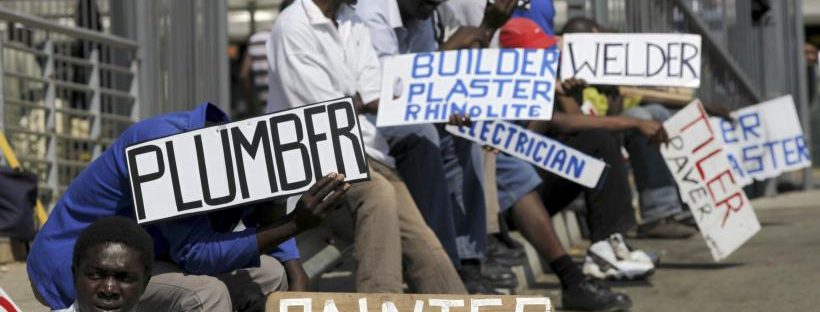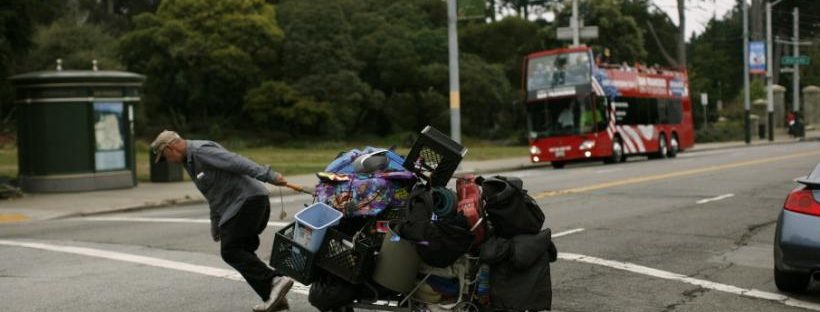Spending this fall for students K-12 is expected to drop 12%, according to a National Retail Federation survey reported in The Wall Street Journal. The average that will be spent on each kid is $634.78, down from $688.62 in 2012. Even those going to college are expecting decreases from $836.80 this year [compared to] $907.22 … Continue reading Back to School: It’s Make-It-or-Break-It Time for the Economy
To Give or Not to Give
Every day, we read about famous Americans supporting nonprofit organizations, [whether it's] Warren Buffett, the Bill & Melinda Gates Foundation, [the] Lilly Endowment, the Walton Family Foundation or the Ford Foundation. [Many wealthy] and middle-class Americans [alike] give because it is the right thing to do, and they do not need recognition because philanthropy is … Continue reading To Give or Not to Give
Charity is in Our DNA
Since the beginning of America, we have been a giving people. [I]n 1630, [Pilgrams] relied on each other to survive the harsh winters. The settlers raised each other’s barns, hosted quilting bees for the community, and built common areas in their towns. Benjamin Franklin, the founding father of American volunteerism, [...] gathered volunteers to sweep … Continue reading Charity is in Our DNA
Sequestration: Public-school Kids, Teachers the Big Losers
Here we are at the end of another school year, and, once again, teachers throughout the United States are facing uncertainty. Will they have a job next school year, and, if so, will their classroom balloon to unmanageable sizes? Congress has not acted, and now the impact of sequestration on federal educational programs is beginning … Continue reading Sequestration: Public-school Kids, Teachers the Big Losers
Pet Care: Why Don’t We Care Every Month of the Year?
April has more pet-awareness events than any other time of year. It is the ASPCA’s Prevention of Cruelty to Animals Month, [the] American Red Cross’ National Pet First Aid Awareness Month, National Heart-worm Awareness Month, National Animal Control Officer Appreciation Week, National Pet ID Week, National Kids and Pets Day, National Hairball Awareness Day, World … Continue reading Pet Care: Why Don’t We Care Every Month of the Year?
What Happens When Unemployment Runs Dry?
[According to Forbes], short-term unemployment—six months or less—was 4.9% [in January 2013], [...] only 0.7% above the pre-recession rate. Long-term unemployment [...] is at 3%, which is three times higher than before the recession. The long-term unemployed make up 38% of all workers without jobs. This troubling [statistic] not only [affects] the societal safety net … Continue reading What Happens When Unemployment Runs Dry?
Is Entrepreneurship Dead in America?
Over 200 years ago, James Madison wrote, “[T]he greater proportion of citizens who are their own masters, the more free, the more independent, and the more happy must be society itself.” Entrepreneurship is a critical measurement of our country’s political vitality and our own personal liberties. The more independent citizens become, power and responsibility will … Continue reading Is Entrepreneurship Dead in America?
Everyone Needs a Bed
Homelessness, poverty, recession—you would hope that a new year would wipe away all of the bad things that have happened to our nation, but it does not. We still wake up in 2013 with the same issues we had in 2012. Is there any hope in sight? According to the U.S. Census, the official poverty … Continue reading Everyone Needs a Bed
The Poor, the Elderly, the Disabled Stand to Lose the Most
More Americans used food stamps to buy their Thanksgiving dinner than any time in our history according to U.S. News & World Report. Forty-two million of us are on food stamps, and the food-stamp program (now called the Supplemental Nutrition Assistance Program, or "SNAP") cost the U.S. government $72 billion last year. This means one … Continue reading The Poor, the Elderly, the Disabled Stand to Lose the Most
Holes in the Safety Net
America’s national safety net of social services is a curious public/private mix supporting the most vulnerable people in our society. It has been clearly pointed out to us this fall that in our current economic crisis, the government will have to be doing less, because the dollars are not there. According to the [National] Council … Continue reading Holes in the Safety Net

